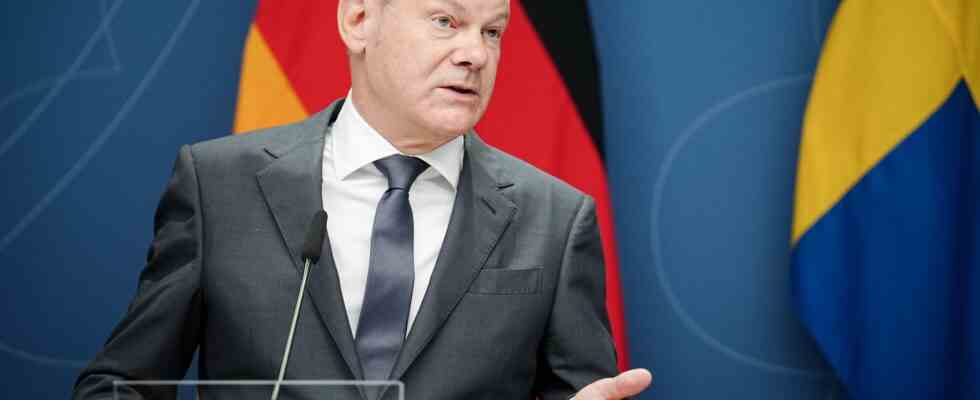Status: 08/16/2022 12:28 p.m
First in Norway – now Chancellor Scholz is also trying to strengthen the energy partnership in Sweden. In the crisis, the entire EU must stand together. He assured Ukraine of further arms deliveries.
Federal Chancellor Olaf Scholz’s visit to Norway and today to Sweden was characterized by the main topic of energy. And the SPD politician once again made it clear in Stockholm how the EU will get through the impending crisis – together and in solidarity.
“It is absolutely necessary that we work together,” emphasized Scholz after his meeting with Swedish Prime Minister Magdalena Andersson. After all: Germany is currently producing urgently needed electricity for neighboring EU countries through gas power generation. A clear signal that the Federal Republic – should the gas supplies become scarce – hopes for help from its European neighbors.
EU states at odds over emergency gas plan
With his appeal, Scholz clearly follows the line of the EU Commission. She also calls for solidarity: Not only should all EU countries save significantly on energy, they should also help each other out in the event of supply bottlenecks. But not all EU countries conform to these goals. Resistance comes from Portugal, Spain and Poland, for example.
The fact that Germany is so clearly insisting on the so-called gas emergency plan of the EU Commission is mainly due to its own dependence on Russian gas. The federal government now wants to free itself from this as quickly as possible and is preparing itself for a possible scarce energy supply. Among other things, a gas surcharge should help energy companies to offset their own additional costs from October if they now have to buy gas at higher prices. Nevertheless, the concern remains that gas resources could become tight. Especially in view of the severely restricted deliveries from Russia via the Baltic Sea pipeline Nord Stream 1.
Sweden is planning longer nuclear power plant durations
One option that both Germany and Sweden are considering in order to secure their own energy supply is longer lifetimes for nuclear power plants. While the German reactors are initially subjected to a stress test to examine the extent to which they should and can remain online longer, Sweden’s Prime Minister is already going one step further. In her own words, Andersson relies on the long-term use of nuclear power. However, no new power plants are to be built in Sweden.
But Germany also relies on partnerships with other countries. Since the start of the Russian war of aggression in Ukraine, Germany has significantly increased its gas imports from Norway. These now cover around 30 percent of Germany’s energy needs. And in the future, Germany wants to cooperate even more closely with Norway, especially in the field of renewable energies, as Scholz announced in Oslo. Norwegian Prime Minister Jonas Gahr also assured Germany that it would remain a “stable” supplier, but he also emphasized that the maximum possible exports to Germany had now reached their limits.
Scholz took part in a summit meeting of the five northern European countries Norway, Sweden, Finland, Denmark and Iceland in Oslo on Monday and then traveled on to Stockholm. In addition to the key issue of energy, the summit meeting also focused on continued support for Ukraine.
More weapons for Ukraine
Together with Sweden’s head of government, Scholz assured Ukraine of further arms deliveries to help the country defend its own territorial sovereignty. However, Scholz and Andersson did not name any concrete plans for possible further weapon deliveries. Andersson merely warned once again that Russia must not win this war. “As long as the war lasts, we must remain steadfast,” she emphasized.
Scholz expects to join NATO soon
With the start of the Russian invasion of Ukraine, Sweden began to rethink its membership in NATO. In mid-May, the Swedish government, like Finland, applied to be included in the defense alliance. During his visit to Stockholm, Scholz was once again confident that both countries would soon be admitted to NATO. Seven of the 30 member countries have not yet ratified the admission. The chancellor urged the states concerned to give their consent as soon as possible, above all Turkey, which had long blocked the start of the admission process.

